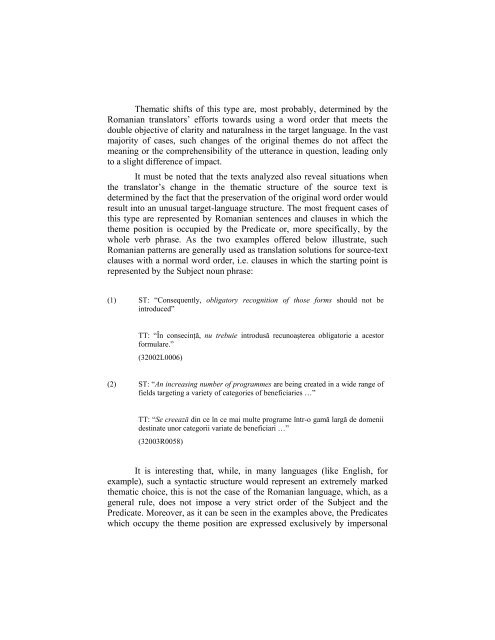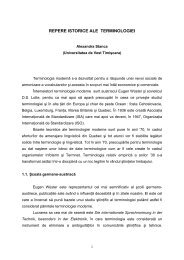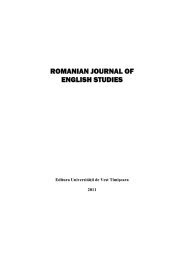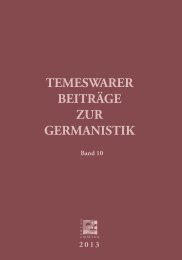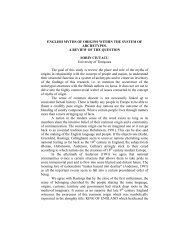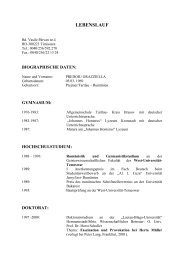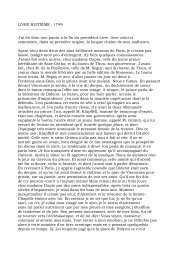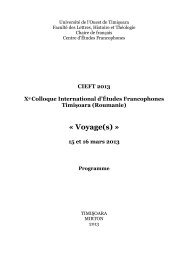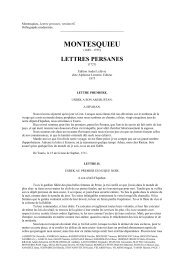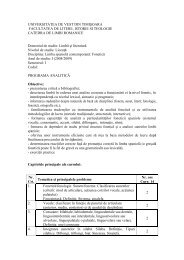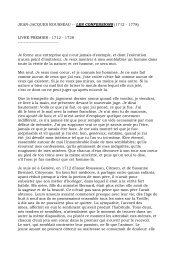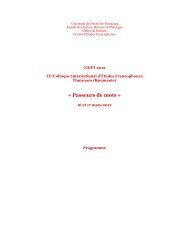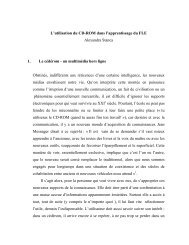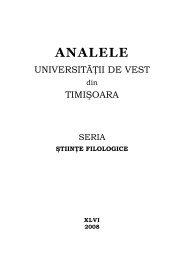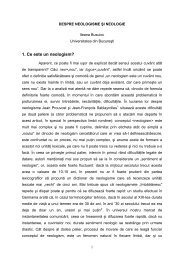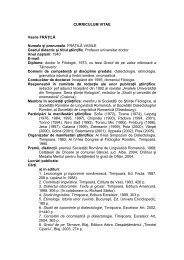TRANSLATION AND MEANING: A CULTURAL- COGNITIVE ...
TRANSLATION AND MEANING: A CULTURAL- COGNITIVE ...
TRANSLATION AND MEANING: A CULTURAL- COGNITIVE ...
You also want an ePaper? Increase the reach of your titles
YUMPU automatically turns print PDFs into web optimized ePapers that Google loves.
Thematic shifts of this type are, most probably, determined by the<br />
Romanian translators’ efforts towards using a word order that meets the<br />
double objective of clarity and naturalness in the target language. In the vast<br />
majority of cases, such changes of the original themes do not affect the<br />
meaning or the comprehensibility of the utterance in question, leading only<br />
to a slight difference of impact.<br />
It must be noted that the texts analyzed also reveal situations when<br />
the translator’s change in the thematic structure of the source text is<br />
determined by the fact that the preservation of the original word order would<br />
result into an unusual target-language structure. The most frequent cases of<br />
this type are represented by Romanian sentences and clauses in which the<br />
theme position is occupied by the Predicate or, more specifically, by the<br />
whole verb phrase. As the two examples offered below illustrate, such<br />
Romanian patterns are generally used as translation solutions for source-text<br />
clauses with a normal word order, i.e. clauses in which the starting point is<br />
represented by the Subject noun phrase:<br />
(1) ST: “Consequently, obligatory recognition of those forms should not be<br />
introduced”<br />
TT: “În consecinţă, nu trebuie introdusă recunoaşterea obligatorie a acestor<br />
formulare.”<br />
(32002L0006)<br />
(2) ST: “An increasing number of programmes are being created in a wide range of<br />
fields targeting a variety of categories of beneficiaries …”<br />
TT: “Se creează din ce în ce mai multe programe într-o gamă largă de domenii<br />
destinate unor categorii variate de beneficiari …”<br />
(32003R0058)<br />
It is interesting that, while, in many languages (like English, for<br />
example), such a syntactic structure would represent an extremely marked<br />
thematic choice, this is not the case of the Romanian language, which, as a<br />
general rule, does not impose a very strict order of the Subject and the<br />
Predicate. Moreover, as it can be seen in the examples above, the Predicates<br />
which occupy the theme position are expressed exclusively by impersonal


